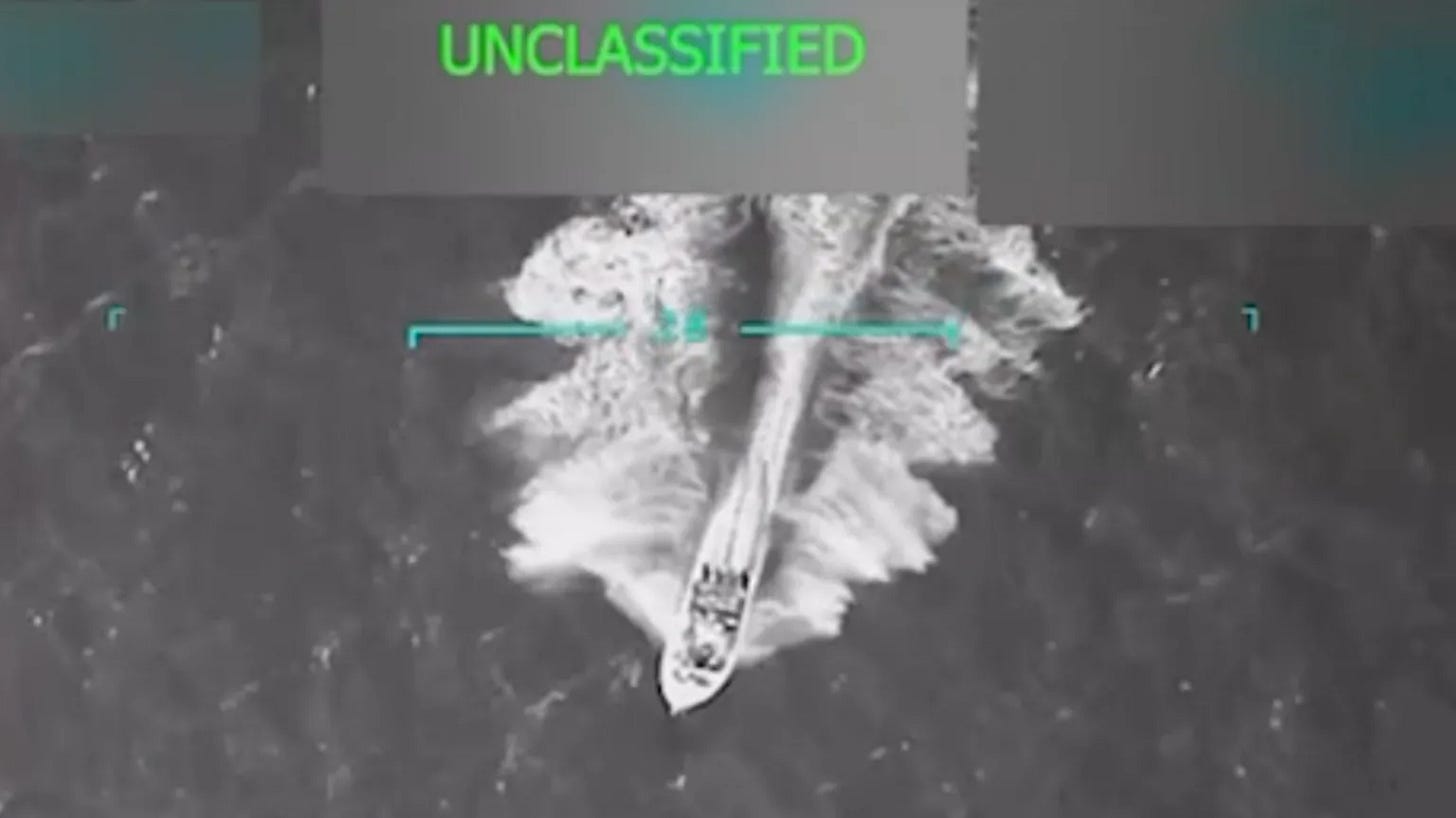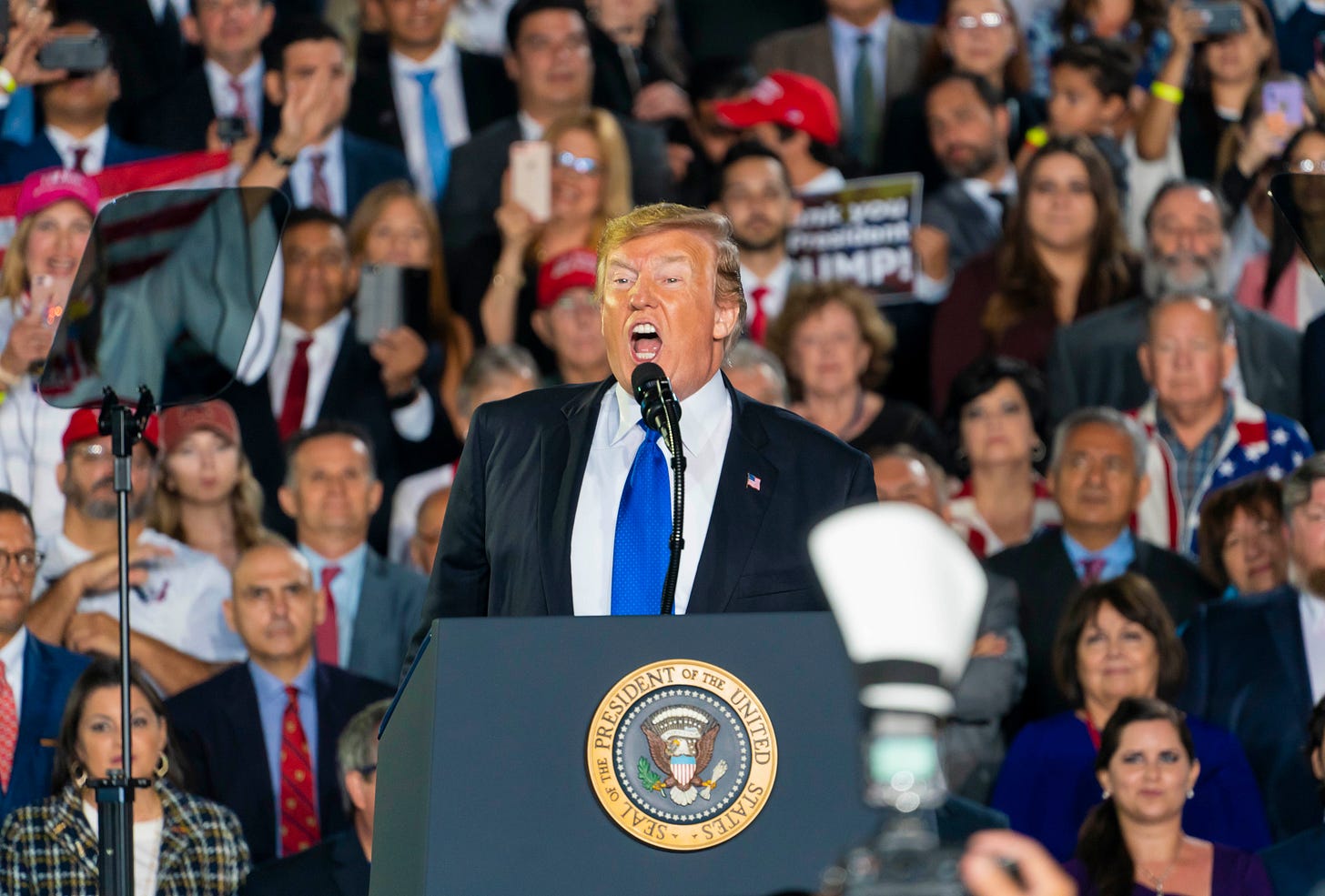Trump Discussing Strikes In Venezuela In Defiance Of International Law
A war on the American continent is closer with every passing day.
When we asked in our recent piece “Is Trump About To Start A War on the American Continent” whether the military buildup in the Caribbean was a precursor to something larger, we already feared the answer. Now it may be here: President Donald Trump is actively considering military strikes inside Venezuela, aimed at what he calls cartel targets. His regime has already demonstrated a willingness to kill Venezuelans at sea, and with the growing concentration of U.S. firepower in the region, the picture is unmistakable. What is unfolding is not a counter narcotics campaign. It is the opening salvo of a war.
Let us be clear: this plan is not counter narcotics policy. It is an act of war, and under the United Nations Charter it is flatly illegal. Article 2(4) prohibits the threat or use of force against the territorial integrity or political independence of any state.
Venezuela has not attacked the United States, nor has the UN Security Council authorized action. By every measure of international law, Trump’s plan is aggression dressed up as drug policy, a cynical manipulation of legal language that attempts to disguise unlawful violence as law enforcement.

The September 2 U.S. strike on a vessel in the southern Caribbean, which killed eleven Venezuelans accused of being gang members, was the first illegal step across the line. That strike was carried out without international oversight, without evidence presented to neutral bodies, and without recognition of Venezuela’s sovereignty.
Now, with ten F-35 stealth fighters moved into Puerto Rico, warships patrolling off Venezuela’s coast, surveillance aircraft circling above, and a nuclear submarine prowling the waters, Trump is preparing to normalize extrajudicial killing and military occupation in the Americas.
The buildup has been steady and deliberate. Every deployment sends a message of intimidation. The presence of stealth aircraft in Puerto Rico, capable of striking deep into Venezuelan territory, underscores that Washington is not merely interested in interdiction at sea. The goal seems to be to build the capacity for airstrikes inside Venezuela itself. History teaches us what follows such deployments: the so-called limited strikes that spiral into larger conflicts, destabilizing entire regions for years to come.
If this was about drugs, Washington would be targeting the financial pipelines that run through Wall Street, Miami, and Texas banks. Everyone knows that the laundering of cartel money in the United States is a greater enabler of narcotics trafficking than any fishing boat in the Caribbean. Instead, Trump is projecting force onto a weaker neighbor, ignoring sovereignty, and using criminal gangs as an all purpose excuse to justify war. The true objective is political theater: to look tough on crime abroad while instigating a fascist takeover of the streets of his home country.
Trump’s regime has taken the dangerous step of designating Venezuelan linked cartels as foreign terrorist organizations, a legal sleight of hand that allows him to blur the lines between policing and warfare. By labeling cartels as terrorists, Trump claims new powers under U.S. law to conduct extrajudicial killings, drone strikes, and covert raids. But international law recognizes no such trick.
Drug trafficking is a matter of law enforcement and cooperation, not unilateral strikes that kill civilians and risk regional destabilization. To pretend otherwise is to tear up the legal fabric that has held fragile peace in the hemisphere for decades.
This maneuver also places Venezuela itself in Washington’s crosshairs. By tying the cartels to the Maduro government, the Trump regime opens the door to treating the entire Venezuelan state as a terrorist entity. This is a dangerous distortion, and it risks turning a domestic criminal problem into the pretext for full-scale international conflict.
The world must treat this for what it is: a war of choice and vanity. Trump is betting that aggression in Latin America will rally his base at home, playing on the politics of fear and scapegoating rather than diplomacy and law. But this gamble puts the entire hemisphere at risk. Strikes against Venezuela will invite retaliation, collapse fragile regional diplomacy, and set a precedent that U.S. presidents may invade any Latin American nation under the guise of fighting crime.
The potential consequences extend far beyond Venezuela’s borders. Neighboring countries, already struggling with refugee flows and economic crises, could see conflict spill over. Alliances may fracture as Washington pressures others to support its illegal war. International institutions will be weakened as Trump flaunts his disregard for the United Nations. And ordinary people, from Caracas to San Juan to Miami, will pay the price of reckless escalation.
We condemned the buildup when it began, warning that the Caribbean deployments were more than counter narcotics maneuvers. Now, as Trump openly flirts with striking inside Venezuela, the picture is unmistakable: this is not a war on cartels, it is a war on international law. It is the substitution of brute force for diplomacy, of arrogance for restraint, of domestic political gamesmanship for genuine regional security.
The time for hesitation has passed. The international community must call this what it is, and act to prevent a disaster on the American continent.




